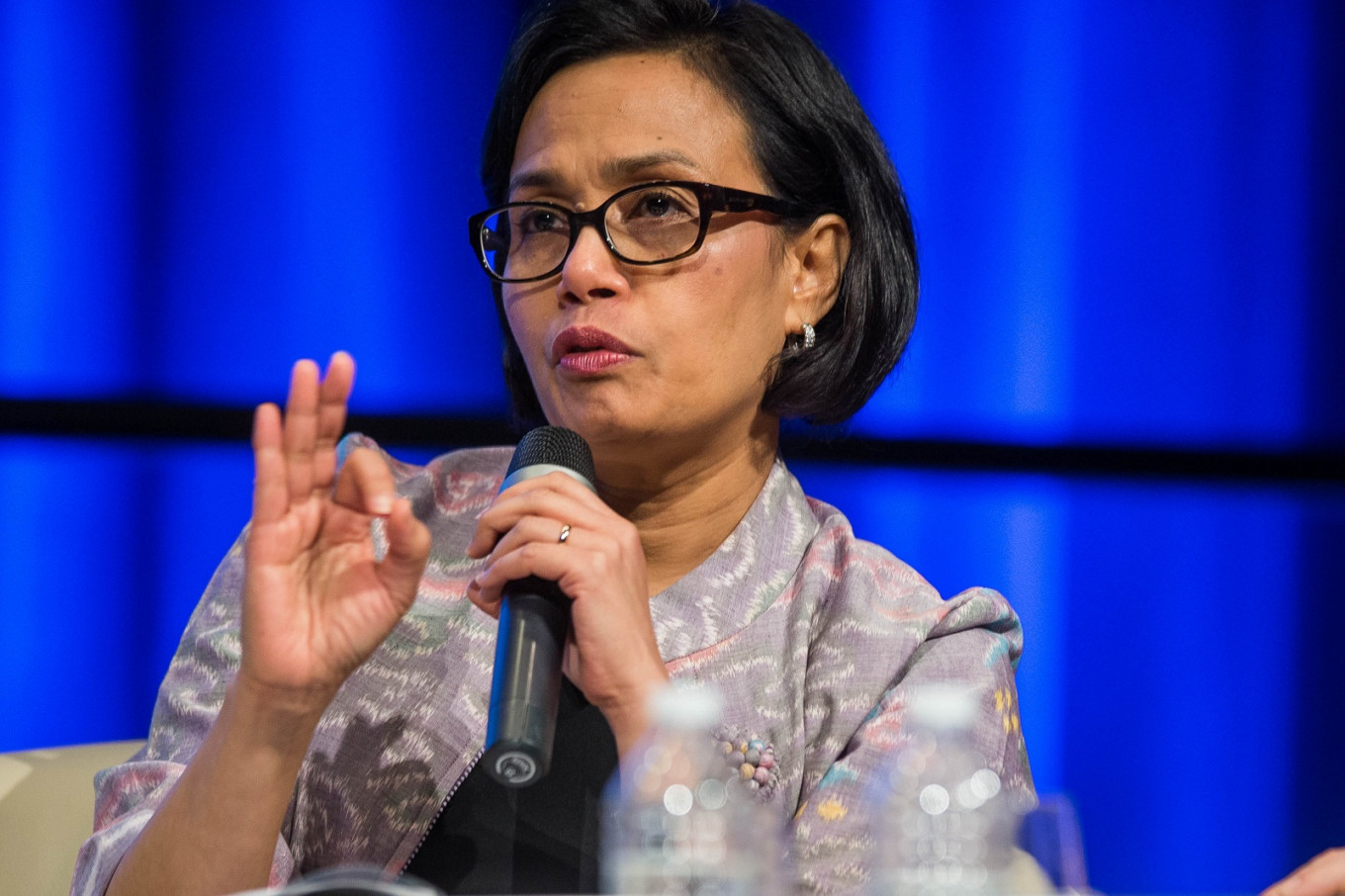Popular Reads
Top Results
Can't find what you're looking for?
View all search resultsPopular Reads
Top Results
Can't find what you're looking for?
View all search resultsSri Mulyani responds to criticism about government debt
Change text size
Gift Premium Articles
to Anyone
F
inance Minister Sri Mulyani Indrawarti has responded to criticism of swelling government debt, which reached Rp 4.42 quadrillion (US$313.83 billion) in December, by arguing that people should not only see the debt from its nominal side.
Government debt was recorded at Rp 2.61 quadrillion when President Joko “Jokowi” Widodo took office in 2014.
“If the debt is only seen from its nominal side, […] it is confusing or it tends to frighten people,” Sri Mulyani said on Monday as quoted by kompas.com in response to criticism from senior economist Faisal Bari. Presidential candidate Prabowo Subianto also criticized the minister, calling her a “debt printing minister”.
Sri Mulyani called on those who criticized her to see government debt in a broader context, particularly how it was used to guard the country’s economy.
“Was the debt able to guard Indonesia’s economic stability while facing the pressure due to the drop of commodity prices and negative exports in 2014 and 2015? Was it used to develop infrastructure?” the minister argued. “Or was the debt able to narrow the poverty [gap]? Were we able to maintain economic growth? So, if it is seen as debt only, we will miss the context.”
Sri Mulyani added that the debt to gross domestic product (debt to GDP) ratio was less than 30 percent compared to a number of developed countries whose debt to GDP ratio was higher than 100 percent.
Economist Faisal Basri (The Jakarta Post/vny)Faisal said in the period from 2014 to 2018, government debt grew 58.5 percent, while the debt to GDP ratio increased from 24.7 to 29.8 percent.
He added that Indonesia’s debt to GDP ratio was not comparable to the debt to GDP ratio of developed countries like Japan, which was recorded at 253 percent.
Faisal argued that Japan was not only a debtor, but also a creditor and the majority of the country’s government debt papers were held by Japanese citizens, while Indonesia was purely a debtor and the majority of government debt papers were held by foreigners.
“That is why the Indonesian [economy] is not resistant to external fluctuations,” he said as published in faisalbasri.com. (bbn)











